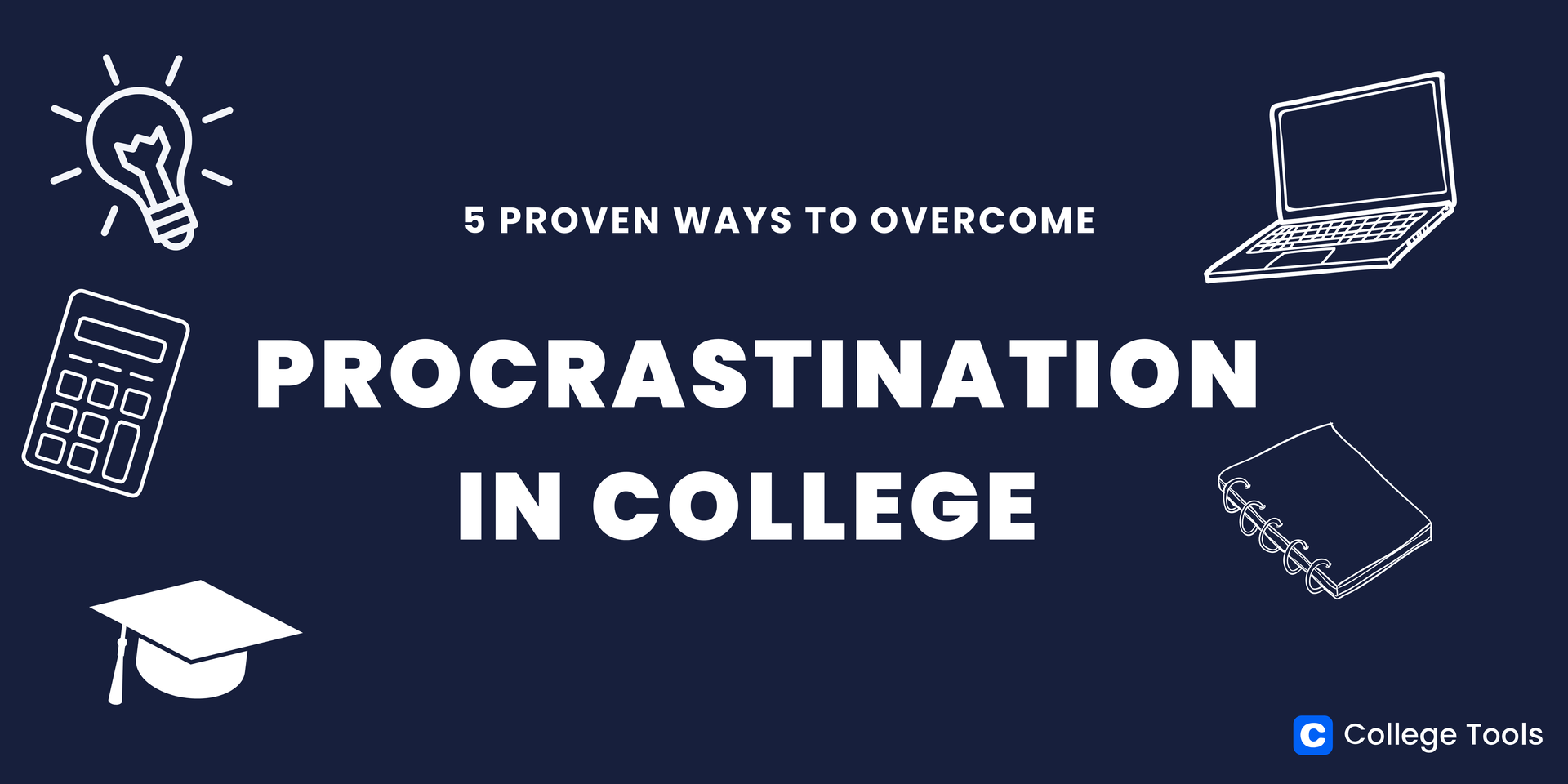Table of Contents
Introduction
Procrastination is a pervasive issue among college students. It is often the invisible barrier that stands between a student and academic success, leading to unnecessary stress, subpar work, and lower grades. In the fight against procrastination, understanding its roots and utilizing proven strategies, augmented with modern tools like College Tools, can be a game-changer.
Unraveling the Threads of Procrastination
Procrastination is the act of delaying tasks that should be done, often in favor of doing something more enjoyable or less stressful. However, it's not just about laziness or poor time management; it's a complex interplay of psychological elements including fear of failure, perfectionism, lack of motivation, and a weakened self-discipline. To overcome procrastination, students must adopt strategies that tackle these underlying factors, improving both their time management skills and emotional resilience.
1. The Power of the Pomodoro Technique
The Pomodoro Technique is a time-management method that involves breaking work into 25-minute intervals, each separated by a five-minute break. This encourages focus and productivity by preventing burnout and overwhelming feelings often associated with large tasks. By creating manageable chunks of focused work periods, the Pomodoro Technique makes it easier to start tasks, combating one of the main triggers of procrastination - the intimidation of beginning.
2. Embrace Self-Compassion
Research has consistently shown that self-compassion is a crucial element in overcoming procrastination. Being kind to oneself and accepting that everyone struggles at times can make the prospect of tackling challenging tasks less daunting. Instead of berating oneself for past procrastination, acknowledging the difficulties and fostering a self-encouraging mindset can significantly reduce the tendency to delay tasks.
3. Harness the Power of Visualization
Contrary to common belief, visualizing the process of working on a task, rather than the end goal, has been found to reduce procrastination. This subtle shift in focus emphasizes the actions needed to achieve the desired outcome rather than the daunting task itself. Visualizing the steps creates a mental pathway towards completion, making it easier to initiate the task.
4. Set SMART Goals
Setting goals can be a potent anti-procrastination strategy, especially when they are SMART - Specific, Measurable, Achievable, Relevant, and Time-bound. SMART goals provide clear direction and measurable outcomes, making the task at hand seem more manageable and less intimidating. This structure reduces ambiguity and indecisiveness, two common triggers for procrastination.
5. Leverage Technology
In the digital age, technology can be a valuable ally against procrastination. Digital tools can help manage and organize tasks, reducing the mental load and making it easier to start working. With automated reminders and progress tracking, these tools can provide the necessary nudges to keep procrastination at bay.
Enhancing Anti-Procrastination Strategies with College Tools
While the above strategies are effective in combating procrastination, their impact can be further augmented with a tool like College Tools. Here's how:
-
Streamlined Workflow: College Tools offers instant, AI-powered solutions for multiple-choice questions. This feature allows for an efficient workflow, reducing the inertia often associated with starting tasks and helping overcome procrastination.
-
Task Management: The dashboard provided by College Tools organizes all past questions, enabling students to efficiently manage and review their tasks. This clear structure and easy accessibility can make daunting tasks seem more manageable, reducing the tendency to procrastinate.
-
Supports Focus: By seamlessly integrating into your browser, College Tools serves as a non-intrusive study aid. It supports focused work sessions like those encouraged by the Pomodoro Technique, helping students stay on task and resist distractions.
Conclusion
Procrastination can be a significant obstacle to achieving academic success, but it doesn't have to be. By understanding the psychology behind procrastination, implementing proven anti-procrastination strategies, and leveraging intelligent tools like College Tools, students can overcome procrastination, stay on top of their college workload, and propel themselves towards their academic goals. It's not an overnight journey, but with patience, persistence, and the right tools, it's a battle that can be won.


